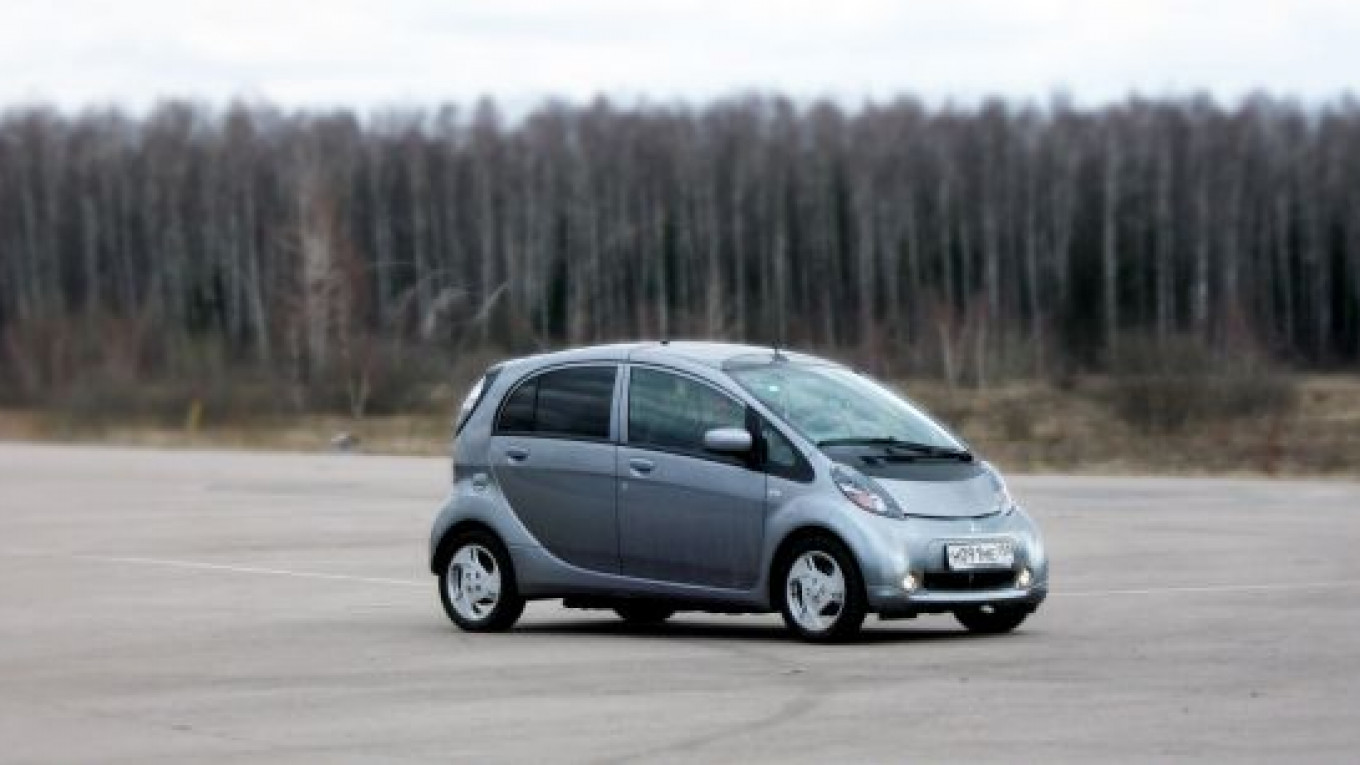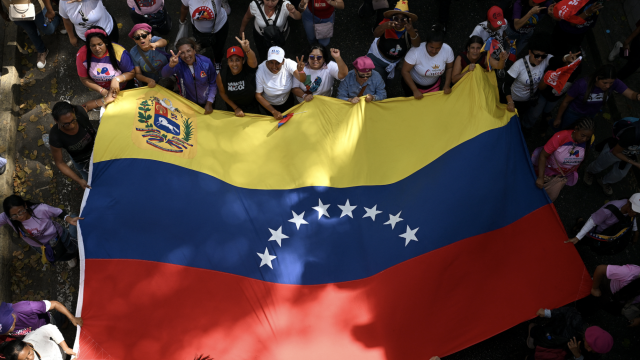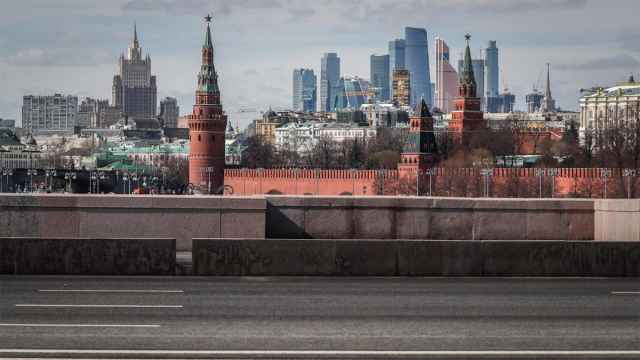A week of billion dollar deals has injected new energy into the auto market's recovery and put the government well on the way toward its goal of producing 80 percent of cars sold in Russia domestically.
On Wednesday, Ford and local car producer Sollers signed an agreement to form a joint venture that could turn out 350,000 vehicles a year by 2015.
The two companies also signed a letter of intent for a 39 billion ruble ($1.4 billion) loan in financing from Vneshekonombank. Total investment is estimated to reach 74.5 billion rubles, according to the government, Bloomberg reported.
The deal followed the announcement last week that Italian carmaker Fiat — which Sollers had earlier jilted in favor of the Ford deal — will invest $1.1 billion to build 120,000 cars a year in Russia.
Meanwhile, Nissan and its partner Renault were reported to be planning to invest as much as $2 billion in Russia by 2015.
With local partner AvtoVAZ, the Russian market leader in which Renault has a 25 percent stake, the companies hope to increase their output to 1.6 million vehicles by 2015.
These are just three of 10 deals the Economic Development Ministry says it signed with foreign companies in the past week.
The investments were prompted by a recent adjustment to an incentive system under which the government offers waivers on import tariffs on parts in exchange for commitments to build a certain number of cars in Russia.
In a bid to reverse the damage done by the economic crisis, the government increased its requirements drastically at the beginning of 2011. To qualify for waivers, companies must now turn out 300,000 to 350,000 units per year by 2014 to 2015, build technical research centers and achieve 55 to 60 percent localization of parts.
Companies had until June 1 to present production plans to qualify for the perks. Others said to have taken up the challenge include GM and Volkswagen.
If they work out, the new deals could bring domestic car production to 2 million units per year by 2020 — 80 percent of today's market.
The Association of European Businesses estimates that 1.97 million cars and light vehicles were sold in Russia in 2010, and it projects sales of 2.5 million this year.
The market grew 60 percent year on year in the first five months of 2011, with sales of new vehicles up 48 percent year on year in May, AEB said Wednesday.
Imports of new cars were up 95 percent year on year to 365,200 in January to May, the economy ministry said Wednesday.
AEB has said the market could reach pre-crisis levels of 2.8 million to 2.9 million units by 2012.
But while the incentives may have served as a catalyst, analysts said the foreign car giants would not be sinking such huge sums into the country if it weren't in their interests.
"Russia is a big strategic market not yet fully developed. Every company that wants to increase its presence and share of local production here has to look to the long term," said Sergei Udalov of industry journal Avtostat. "That's why we're seeing such big numbers. These are not short- or medium-term investments."
But one company is gambling that, by that time, the car industry will be taking a wholly new direction.
Mitsubishi and its Russian distributor Rolf Import launched "experimental" sales of its iMiEV, a wholly electric car, at an event in Skolkovo on Thursday.
Unlike the much touted Yo-Mobile and other hybrids, the small five-door hatchback runs entirely on a battery that can be recharged at ordinary domestic power points or specialized charge points.
The Moscow energy company MOESK and a privately owned firm called Revolta are to set up an experimental network of 28 charge points around Moscow and the Moscow region in an 11-month pilot project.
The iMiEV has seen moderate success in Japan, the United States and some European countries, but its uptake has been heavily dependent on government assistance in the form of VAT and excise waivers, subsidies for customers and privileged road access for low-emission vehicles.
In the absence of such state support, the vehicle will initially retail in Russia for a prohibitive 1,799,000 rubles ($64,768), said Andrei Pankov, chief executive director of Rolf Import.
Pankov said 600,000 rubles of that was taken up by VAT, while the battery accounts for 50 percent of the initial cost of the vehicle — both of which should drop if the state legislates and technology improves.
"In the 1990s no one could imagine how cheap and normal charging mobile phones or laptops would become. We're in exactly the same situation with electric vehicles," Pankov said. "This is the car of the future."
The first batch of iMiEVs destined for Russia will roll off production lines in Japan in July.
Mitsubishi is not among the firms pledging to meet the 350,000-unit threshold, although it does plan to up production at its Kaluga plant from 9,000 this year to 20,000 in 2011, Mitsubishi Russia general director Shin Fujioka told The Moscow Times on Thursday.
General Motors is considering putting Opel up for sale again as management is losing confidence that the European arm will return to profitability, two German magazines reported, according to Reuters.
Auto Bild and Spiegel Online reported Thursday, without citing any sources, that possible buyers could be Chinese carmakers or Germany's Volkswagen, which has almost 20 billion euros ($29.3 billion) available to spend.
In late 2009 General Motors abruptly ended negotiations on the sale of Opel to a consortium of Canadian car parts maker Magna and Russia's Sberbank.
At the time, Prime Minister Vladimir Putin personally supported the bid, saying the Opel deal "should be incorporated into the strategy" to develop domestic carmakers.
A Message from The Moscow Times:
Dear readers,
We are facing unprecedented challenges. Russia's Prosecutor General's Office has designated The Moscow Times as an "undesirable" organization, criminalizing our work and putting our staff at risk of prosecution. This follows our earlier unjust labeling as a "foreign agent."
These actions are direct attempts to silence independent journalism in Russia. The authorities claim our work "discredits the decisions of the Russian leadership." We see things differently: we strive to provide accurate, unbiased reporting on Russia.
We, the journalists of The Moscow Times, refuse to be silenced. But to continue our work, we need your help.
Your support, no matter how small, makes a world of difference. If you can, please support us monthly starting from just $2. It's quick to set up, and every contribution makes a significant impact.
By supporting The Moscow Times, you're defending open, independent journalism in the face of repression. Thank you for standing with us.
Remind me later.






